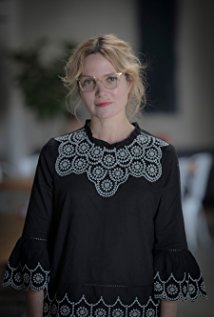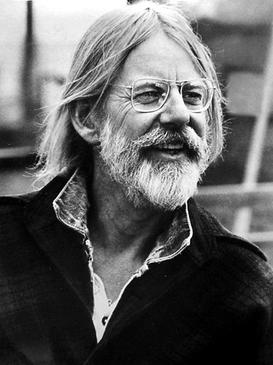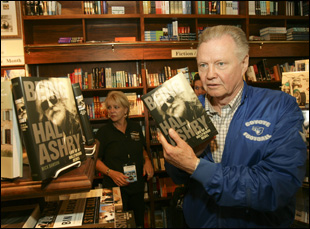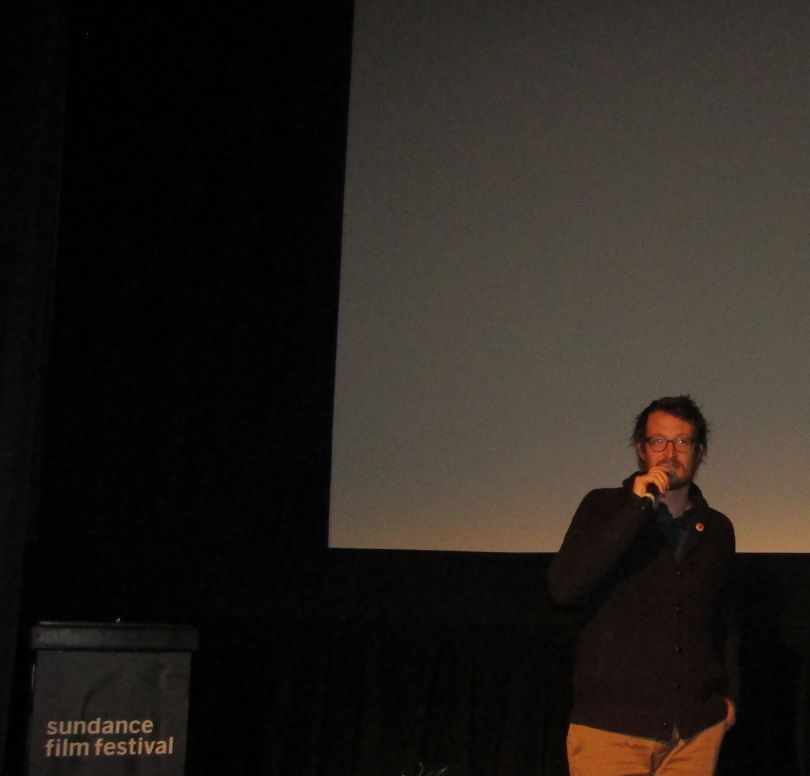|
|
||
|
Pro Tools
FILMFESTIVALS | 24/7 world wide coverageWelcome ! Enjoy the best of both worlds: Film & Festival News, exploring the best of the film festivals community. Launched in 1995, relentlessly connecting films to festivals, documenting and promoting festivals worldwide. Working on an upgrade soon. For collaboration, editorial contributions, or publicity, please send us an email here. User login |
"Labor of Love" 'Hal' Chronicles The Seminal American Auteur
As a disclaimer before watching Amy Scott’s ‘Hal,’ a loving and knowing documentary on the life of the seminal 70s auteur Hal Ashby, it’s a film for the ultimate cineaste. It’s for the filmgoer who prides his or herself on encyclopedic knowledge, bordering on obsession, of the “New Hollywood,” or as sometimes referred to as the American New Wave. Ashby, while an influential filmmaker of the 70s canon when he released 7 memorable films of the era in succession, he somehow fell into cultural oblivion after ‘Being Human’ in 1979. Fortunately, documentarian Amy Scott immortalizes his legacy in this definitive portrait of Hal Ashby. Ashby reeled off 7 iconic films, such as Harold and Maude, Shampoo, The Last Detail, Bound for Glory, Coming Home, among others, consecutively in the 1970s. When the studio system collapsed in the late 1960s, Ashby was personified as the quintessential 1970s director; one who uncompromisingly displayed personal vision within narratives that often strongly veered away from classical norms. ‘Hal’ represents Amy Scott’s debut film but it’s clear, as she herself is a longtime editor, she’s firmly in control of her craft, and knowing of her subject. The film provides insightful interviews by some of Ashby’s closest friends and peers, like screenwriter Robert Towne, actors Jeff Bridges, and brother Beau, Jane Fonda, Lou Gossett Jr, Warren Beatty, Jon Voight, and director Norman Jewison (who gave Ashby his first shot). Yusuf Islam (formerly Cat Stevens) who provided the score for Harold and Maude, is also a memorable inteviewee. “These are seminal films that influenced generations of filmmakers, and then went on to make films that influenced me,” Scott said in an interview leading up to screenings, which premiered at the 2018 Sundance Film Festival. “This is the official Hal Ashby documentary. We partnered with the Estate, so that meant we had access to a lot of material that Ashby had – posters, film canisters, Betamax, and art, and bags of clothes from Bound for Glory, with dust still on them. It was just mind-blowing.” (Bound for Glory, nominated for numerous Academy Award nominations, depicted a young Woody Guthrie starring David Carradine). Since Ashby was a bit of a recluse when it came to giving on-air interviews, Scott used recording devices, which were offered to her by his Estate. The film includes seminars Ashby gave at the American Film Institute in the 1970s and 80s. He died from pancreatic cancer in 1988. “We found sound recordings of Ashby, taken from seminars from AFI so we could let him tell his story in his own words,” she explained. “His statements about how you approach filmmaking was like going to some Zen Buddhist monk and learning about everything in about 30 seconds with these phrases that he would just flippantly throw out… [And you thought]. ‘God, that’s the secret to filmmaking. That’s everything, and all I need to know.” Like Ashby, Amy Scott began her career as an editor. She worked as a media producer for the University of Chicago, a film instructor at Chicago Filmmakers, and as head digital archivist to Studs Terkel at the Chicago History Museum. Leading up to ‘Hal,’ Scott edited several award-winning films, which premiered at Sundance Film Festival and South by Southwest Film Fest, among others. While the film may skirt over just a bit about the less flattering elements of Ashby’s life, like his perceived womanizing (married five times) and publicized drug use, it does not sugarcoat the fact that his life played out like a cautionary tale. He was uncompromising, almost to a fault, against a stifling studio system which regained its dominance in the 1980s. Ashby was obsessive in his work, even as an editor in his early professional career. He would assiduously cut a movie while closeting himself in the editing room for months at a time where he would also sometimes sleep. It was Norman Jewison who gave Ashby his first big Hollywood break, as film editor, once Ashby landed in L.A. They worked together on The Cincinnati Kid, The Russians Are Coming!, The Thomas Crown Affair and In the Heat of the Night, which garnered an Oscar for Ashby. Ashby’s ensuing films, as director, dealt largely with stories concerning race, class, and social justice. Ashby’s films reflected the era in which they were shot. The emergence of the new American film of that period mirrored a type of cynicism and mistrust toward American culture. “In Hal’s pictures, you see his modesty, his honesty, his humor; his irreverence, his impatience with hypocrisy, his love of people,” Warren Beatty says in glowing terms in the opening minutes of the film, in a clip taken from Ashby’s funeral. “These are reflected both in the subjects that he chose to deal with, and in the way that he dealt with it.”
“He had a sense of truth, and what was a real moment,” said Robert Towne who would collaborate on films with Ashby like The Last Detail and Shampoo. “He didn’t like to watch moments that were not real. And he was going to let things go… as long as they stayed real.” “What was happening at that time, and how he mirrored society, it kind of shows you of the responsibility of what an artist is - because he took on these giant corporate entities, and he had an unwillingness to really compromise his vision,” said Scott. "And when you pair that with the emotional events in his life, it sort of created the perfect storm for a real tragic fall.” At a screening in Salt Lake City during Sundance, I posed the question why many of his peers, like Jack Nicholson or Warren Beatty, didn’t step up and perhaps champion Ashby’s projects even more in the 1980s when he lost artistic control. Would their clout supporting him make any difference? “I think mostly people in that time felt back then that the only way of doing filmmaking was to keep doing it through the studios,” Brian Morrow, one of the film’s producers, told me. “Probably if he had survived, and made it into the time of when indie-films became possible, he would’ve really thrived. I can’t imagine what he would’ve done with that kind of freedom.”
“Hal embodied the legacy of Sundance,” adds Scott. “And that’s… be obsessed with your craft. Be a rebel; don’t go with the grain. Have an original idea, and follow that through to completion, no matter what… if you can.” Did Ashby envy the level of success by other more known directors, like Francis Coppola or Martin Scorsese? “He was like that generation’s weird older cousin,” continued Morrow during the film's Q/A. “He paved the way for them, but didn’t go down the same road they went down. I’d never found anything in his audio where he said anything was unjust against other filmmakers. [With them] he was cool. He'd just be fighting with the suits." Interestingly enough, in Ashby’s last film, 8 Million Ways to Die, star Jeff Bridges recalled an unfortunate moment when its producer ‘kidnapped’ Ashby’s cuts of the film, and then fired its director. “It was such a heartbreaking thing,” said Bridges. Ashby died two years later. While Scott had long been a fan of Ashby, she grew inspired to make her first film about the director after reading “Being Hal Ashby: Life of a Hollywood Rebel” by Nick Dawson. In addition to chronicling his long road from growing up in Utah, the book details the fundamental mismatch between the auteur and the stifling climate of studio filmmaking in the 1980s. Ashby’s legacy of innovation and individuality continues to influence a generation of independent directors as many remain uncompromising film artists who place substance and style over box-office success. - Jared Feldschreiber 08.02.2018 | Jared M. Feldschreiber's blog Cat. : 70s film Documentary hal ashby movie directing Independent
|
LinksThe Bulletin Board > The Bulletin Board Blog Following News Interview with IFTA Chairman (AFM)
Interview with Cannes Marche du Film Director
Filmfestivals.com dailies live coverage from > Live from India
Useful links for the indies: > Big files transfer
+ SUBSCRIBE to the weekly Newsletter Deals+ Special offers and discounts from filmfestivals.com Selected fun offers
> Bonus Casino
About Jared M. FeldschreiberThe EditorUser contributions |



























